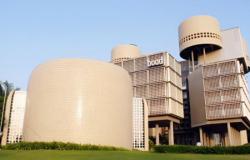SONGDO | In 15 years, the Koreans built an ultra-modern city on the outskirts of Seoul, a model of an intelligent and sustainable city that would make it possible to do without cars entirely; a goal which, however, has not been achieved.
• Read also: Innovative transport: Quebec and Canadian politicians “lacked courage”, according to Bruno Marchand
• Read also: Many lessons to be learned from South Korea
The city of Songdo was built from scratch in the early 2000s.
We refilled 600 hectares of land in the Yellow Sea and invested CA$48 billion in the creation of a city from scratch.
The world’s first smart city, announced Gale International, the conglomerate behind the idea.
The new district was intended to focus on sustainable transportation, which prioritized buses, trains and bicycles.
Everything was planned so that each location was within a 15-minute walk of a bus or metro station.
In total, 40% of the territory has been reserved for green spaces and 24 km of cycle paths have been created.
Songdo
- International Business District
- Located about 60 km south of Seoul
- Start of construction: 2001
- Area: 53 km2
- Population: 167,000 inhabitants
The aim was for citizens to be able to do without cars entirely. However, this objective has not materialized, note two university researchers.
The city of Songdo, built in just 15 years, is ultra-modern and intelligent. Its designers predicted that residents would be able to do without cars. But the main boulevards give a preponderant place to the car, note the two researchers.
Stephanie Martin
Wide boulevards
The newspaper found that vehicles were indeed present on the wide boulevards of the city of Songdo, a clean and immaculate city, whose refined and futuristic buildings rise high.
Main arteries sometimes have six lanes in each direction.
“It is obvious that it is not a city without cars,” notes the DD Sarah Moser, associate professor in the Department of Geography at McGill University.
“There is a wide boulevard that runs through the city, which is a mistake because it encourages automobile travel and creates a hostile environment for pedestrians.”
- Listen to the interview with Stéphanie Martin, municipal affairs journalist at the Journal de Québec on Richard Martineau’s show via QUB :
An opinion shared by the DD Madiha Bencekri, expert in transportation engineering and smart cities at the University of Seoul.
Critics argue that the city’s lack of “warmth” and “dynamism” as well as the limited choice of local shops do not encourage citizens to walk, she emphasizes.
The city of Songdo, built in just 15 years, is ultra-modern and intelligent. Its designers predicted that residents would be able to do without cars. But the main boulevards give a preponderant place to the car, note the two researchers.
Stephanie Martin
Protect motorists
“Reducing dependence on automobiles requires more than infrastructure,” adds the researcher.
“We should raise expectations for these techno-utopian experiences and make them less comfortable for cars,” says the DD Moser.
That’s the key. Songdo wanted to protect motorists while declaring itself a car-free city.”

The city of Songdo, built in just 15 years, is ultra-modern and intelligent. Its designers predicted that residents would be able to do without cars. But the main boulevards give a preponderant place to the car, note the two researchers.
Stephanie Martin
Madiha Bencekri nevertheless notes interesting advances in Songdo, including omnipresent sensors that detect congestion, on-site waste management, omnipresent technology, green buildings and energy efficiency measures.








